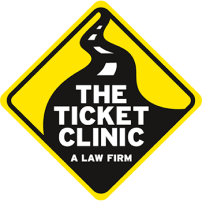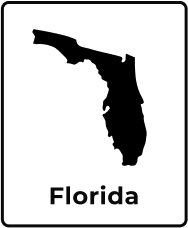Top 7 Speeding Ticket Myths in 2020

You’re cruising along on the highway, and suddenly you hear the ‘whoop-whoop’ of the police siren, see flashing lights in your rearview mirror. Uh-oh! You’re being asked to pull over. You were probably going a few miles over the speed limit, without realizing it.
The officer writes you a ticket for speeding. Now, what?
Most people are not aware of the facts when it comes to speeding tickets. Social media rumors, second-hand stories, and false online information can lead you to make the wrong conclusions. It is important for every driver to be familiar with speeding ticket rules and the myths that surround them so they can effectively fight a ticket, should they receive one.
The top seven speeding ticket myths in 2020 include:
1. You can’t fight a speeding ticket in court and win
On the contrary, there have been many cases fought and won in court pertaining to speeding tickets.
Preparation is key if you plan to fight a speeding ticket in court. You should prepare as early as the moment that you were pulled over – note the device used to clock your speed, the officer’s comfortability with using the device, and the device’s functionality. These can all be grounds for dismissal of your ticket.
One reason for this misconception’s popularity is the fact that a driver representing themselves will be at a disadvantage when going up against a professional prosecuting attorney. Even though representing yourself may seem more cost-effective, hiring an experienced speeding ticket lawyer will drastically increase your chances of getting the ticket dismissed, meaning you will avoid both paying the hefty penalty and seeing your insurance rates increase.
2. When you receive a ticket, you must pay up as quickly as possible
This is not true.
It is within your rights as a citizen to fight the ticket and claim innocence. In this situation, you are not required to pay the ticket unless your efforts to fight the violation are unsuccessful.
However, you are required to respond to the ticket and convey your intention to fight the violation in court.
Before communicating your intentions with the court system, consult an experienced speeding ticket lawyer to ensure you are abiding by the laws. This lawyer can also help you fight the traffic ticket in court.
3. If the officer doesn’t turn up in court, the ticket is automatically dismissed
This is false most of the time, however, it may be true in some cases.
Each state has its own laws requiring different levels of involvement from the ticketing officer. Some states may not require the officer to show up at all, while others do.
Even if the officer is required to appear, the magistrate may decide to re-schedule or go ahead with the hearing in their absence. It is only on very rare occasions that the ticket gets dismissed automatically.
In summary, don’t opt to fight the ticket simply because you don’t think the officer will show up to court.
4. Any mistake on the ticket is grounds for dismissal
This misconception is false in most cases.
In the case of a typographical error, such as a spelling error or slight error in physical description, the ticket will remain valid.
However, if the ticketing officer made a larger mistake, such as failing to sign the ticket themselves, citing the wrong law, or filing the violation in the wrong county, you may have grounds to fight the ticket in court.
If you think your ticket may have a considerable error, consult a speeding ticket lawyer to assess whether you have grounds for a case.
5. If you refuse to sign the ticket, it becomes invalid
Contrary to what you may have seen online, refusing to sign the traffic ticket does not mean you don’t have to pay it. Your signature on any ticket, speeding or otherwise, is simply a confirmation that you received it.
All tickets that are written are entered into the DMV database and listed on your record, signed or not.
6. Matching the ‘flow of traffic’ or ‘passing a slow driver’ are valid excuses for ticket dismissal
Absolutely not. Even if every other driver was doing 80 in a 55 mph zone, and you were doing 70 and were the only one ticketed, the violation still stands. Keep an eye on the speedometer to make sure that you don’t go over the limit regardless of what others are doing. Even if you are overtaking or passing a slower driver, you must remain within the speed limit while doing so. If a ticket has already been written, it is highly unlikely that this argument will lead to a dismissal.
7. You’re more likely to get a ticket towards the month-end as officers have to meet their quotas, and are safe in the initial period
You’re fooling yourself if you believe that.
Each police department is in charge of setting their own guidelines, restrictions, and quotas (if applicable). Because the departments are not streamlined, there is no across-the-board answer that applies to all jurisdictions.
The truth is, most departments don’t have quotas. Officers are expected to remain productive while working their shift, as with any job. An easy benchmark for supervisors to use when measuring productivity is the number of tickets written and the number of traffic stops performed. A supervisor seeing an officer has written five tickets in one shift while another has written one may see the first officer as more productive. However, there is typically no set number of tickets that officers are required to write.
It is important to note that if you have been cited multiple times, you might have a suspended license in Florida in addition to other harsh penalties.
Have you been ticketed for speeding? The best defense you can use in court is an attorney that specializes in traffic-related cases. Our experienced traffic attorneys are well-versed with courtroom tactics and will help you get your ticket dismissed or charges reduced. Call us today at 1-800-248-2846.





